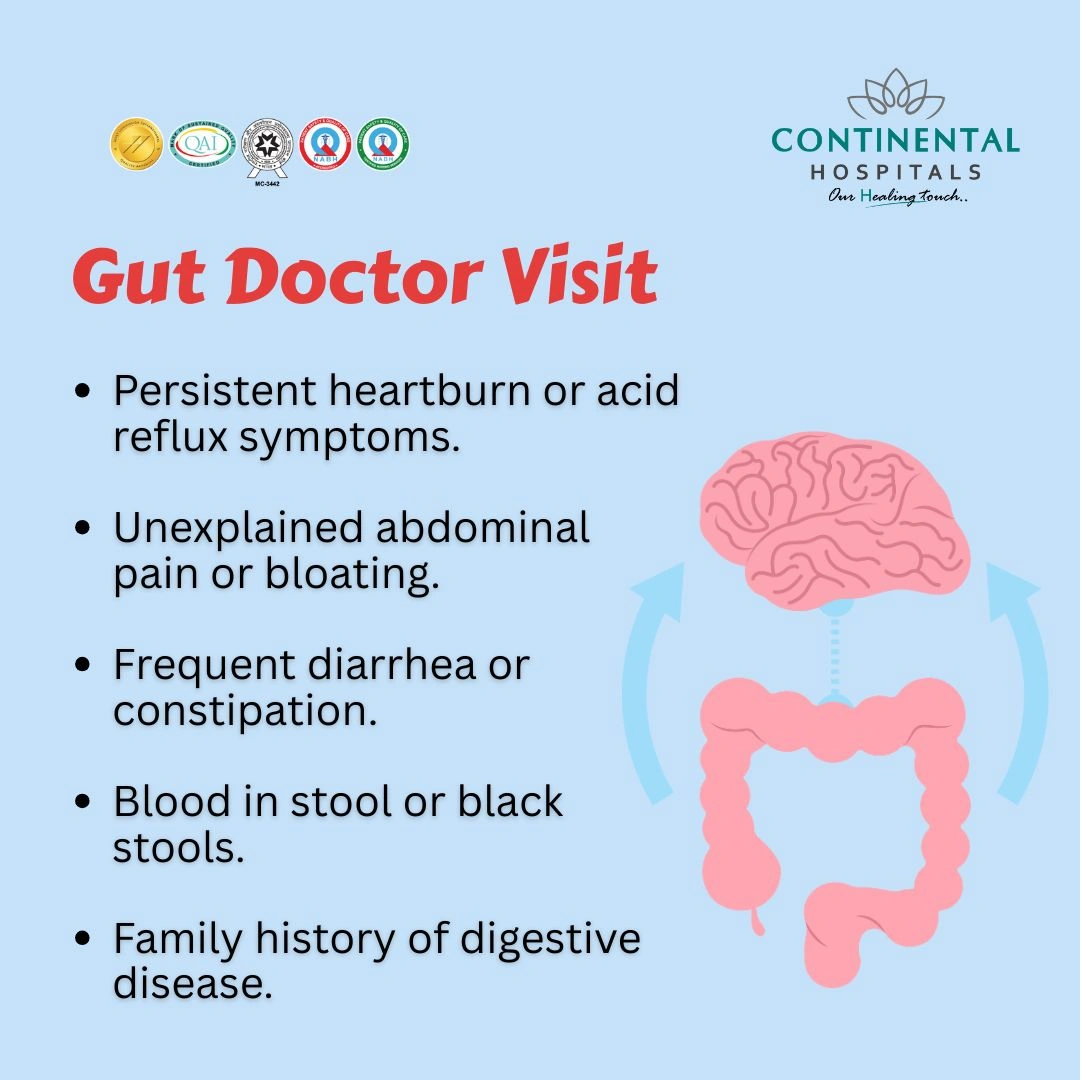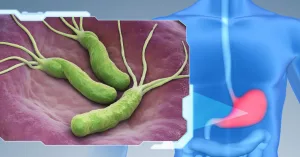
Gut Feeling, or Something More?
Here’s a weird-but-true fact to kick us off: your gut has its own nervous system, nicknamed “the second brain.” Wild, right? It runs on its own, sending you messages—sometimes gentle, sometimes, well… not so gentle. But how often do we actually listen? Or worse—how often do we try to power through digestive weirdness, telling ourselves, “It’s probably just stress… or tacos”?
I’ve been there. That weird cramping, or those “off” bathroom days that stick around way longer than seems reasonable. You’re not alone if you’ve ever typed symptoms into your phone at 2 a.m., then closed it and tried to forget the whole thing. Sometimes our bodies are gently nudging us; sometimes they’re practically screaming, “Hey! Please tell a specialist about this!”
Let’s get real about the symptoms to tell gastroenterologist — the ones you definitely don’t want to brush aside. Trust me, your gut will thank you.
That Hanging-On Tummy Ache?
Not Your Average Bellyache
So, let’s chat about that stomach pain. Not just the once-in-a-blue-moon kind you get after eating too much cheese pizza (we’ve all done it). I mean that ache that keeps showing up, uninvited, again and again.
Abdominal pain that sticks around or keeps returning? That’s your body leaning on the horn. It could be anything from stubborn indigestion to something more complicated like gallstones or irritable bowel syndrome (IBS for short).
Real Story: Sarah’s Gut Instinct
Quick story—from a friend named Sarah. She ignored her cycle of stomach cramps for months (work was crazy, life was busier…). Turns out, she was dealing with early GERD. Luckily, she caught it before things got worse, and getting in to see a GI doc literally changed her day-to-day life. If anything about this feels familiar, consider checking out Why would I be referred to a gastroenterologist and see if it’s time for you to listen to your gut, too.
Heartburn That Won’t Quit?
When the Burn is More Than Just Spicy Food
Let’s talk heartburn. A little sizzle after too much salsa—sure, happens to the best of us. But are you living on antacids? Is that fire sneaking up your throat way more than you want to admit?
Here’s the scoop: frequent or worsening heartburn, especially if it wakes you up or hangs on for weeks, might be signaling conditions like GERD, which stands for gastroesophageal reflux disease. According to several GI docs (and honestly, way too many personal stories from friends), long-term, untreated heartburn can lead to inflammation, scarring, or even higher cancer risk down the road. Turns out, it’s not just “spicy food regret” if it keeps sticking around according to Houston Methodist’s GI specialists.
Table: Heartburn — What’s Normal vs. Not Normal
| Typical Heartburn | Heartburn Red Flags |
|---|---|
| After overeating or eating late | Multiple times a week, especially at night |
| Goes away with lifestyle fixes/antacids | Doesn’t respond to OTC meds |
| No additional symptoms | Pain with swallowing, cough, nausea, or vomiting |
I once went to a BBQ and dared to stack extra jalapeños on my burger… Bad idea. But once the pain faded after a day or two, I knew it was a food thing. If you feel that burn way too often, it’s time to flag it for your GI doctor—seriously.
Unsure what happens at that first appointment? I totally get it. Here’s the inside scoop with What does a gastroenterologist do on first visit, so you’ll know exactly what kind of friendly questions and checks to expect.
Bathroom Habits All Over?
When Your Gut’s Calling the Shots
Let’s get personal for a sec—how’s your bathroom routine? Is it… unpredictable? Are you visiting the toilet way more (or way less) than you used to? Do things, uh, look different than before?
Changes in your normal cycle—diarrhea, constipation, or even sudden, unexplained urges—are classic symptoms to tell gastroenterologist about. These issues are super common, but when things are “off” for weeks—especially with extra-embarrassing signs like blood, mucus, floating stool, or pain—it’s not just about last night’s dodgy takeaway according to GI experts.
Ask Yourself These:
- How long are things off? One day, or a couple of weeks?
- Are ideas like “maybe I’m just stressed” starting to feel like wishful thinking?
- Is there pain, blood, or weight loss along with these cycles?
A fun (not really) mini-story: I had a coworker who nicknamed himself “the lottery” because he “never knew what he’d get” when he went to the bathroom. It was funny… until it really wasn’t. A trip to the GI revealed celiac and got him back on track. If your gut’s behavior is a mystery novel, now’s the time to hand it to a specialist.
Plus, just in case you’re wondering what seeing a GI for quirky symptoms feels like, grab some comfort from What does a gastroenterologist do on first visit. Knowledge is power, right?
Bloating That Sticks Around?
More Than Just “Gassy”
Do you ever eat a meal and wonder if you’re quietly morphing into one of those parade balloons? A little puffiness is one thing, but persistent, uncomfortable bloating? That can be a clue your gut is protesting something bigger.
If your jeans are suddenly tight for days, or if you keep having to sneak out to discreetly “de-bloat,” your gut might be dealing with issues like food sensitivities, SIBO (that’s small intestinal bacterial overgrowth), or even IBS. Don’t just live with it… and don’t feel embarrassed to bring it up. It’s way more common than you think according to the American College of Gastroenterology.
Quick Tips—Home Experiments (Try Carefully!)
- Does skipping dairy for a week help?
- Are certain foods reliably “troublemakers” for you?
- Is the bloating worse at specific times of day?
My neighbor used to blame every family meal for their bloat… Eventually got tired of missing out and asked their doc, “Could this be more than just food?” Turns out, sometimes you really do need a GI perspective.
Want to know if you’ll be referred over? Here’s where Why would I be referred to a gastroenterologist comes in handy for breaking down what your GP is thinking!
Trouble Swallowing—or Food That Goes “Down the Wrong Pipe”?
When Swallowing Isn’t Simple
It’s easy to assume swallowing should just… work. So when it gets tricky—water goes down slow, bread feels stuck, or you keep getting that lump-in-the-throat drama? Your GI doc wants to know.
Ongoing trouble swallowing can mean your esophagus (the tube that carries food) might be inflamed, narrowed, or stressed out by repeated reflux. Some of these lines of investigation need a camera or two (endoscopy!) but spotting it early makes a massive difference according to GI guidance.
A Little Story
One of my friends literally started eating soup for every meal—she was too nervous to admit solids were tough to swallow. After an honest chat with a GI and an easy test, she finally got to eat all her favorites again (minus the trauma). There’s no heroism in toughing this out—if this is you, open up at your appointment. (If you want to know what to expect, check out what’s included at your appointment in What does a gastroenterologist do on first visit.)
Mystery Weight Loss?
Not Every Weight Loss is Good
Have your pants gotten loose but nothing else in life has changed? Unexplained, quick weight loss—especially if you’re not trying—is a classic red flag in the GI world.
Sometimes it’s tied to gut conditions that make it hard for your body to absorb what you need, like Crohn’s or celiac. But losing weight alongside fatigue, pain, or diarrhea? Please, don’t ignore this—talk to a pro soon as some experts suggest.
Handy Table for Your Next Appointment
| Symptom | How Long | Is it Severe? |
|---|---|---|
| Weight loss | 2+ weeks | Always flag this |
| Abdominal pain | Many days/week | Match with other symptoms |
| Blood in stool | Anytime | Flag right away |
Personal vibe here: my uncle ignored pounds dropping off until family convinced him to ask about it. GI intervention finally got him treatment—and got him back to his weekend BBQs.
Blood Where It Doesn’t Belong?
Bloody Surprises, Not So Welcome
Okay, this one’s serious. If there’s red or black in the bowl, on the toilet paper, or anywhere it shouldn’t be—that’s your cue to call. Now.
While most blood comes from hemorrhoids, it can also be a clue to ulcers, polyps, or even colorectal cancer. Your GI doctor will know the right next test.
Quick Case: From “It’s Nothing” to Peace of Mind
A co-worker saw some blood, shrugged it off, but told his GP just in case. That chat (and a quick referral) ended up finding a small polyp—handled before it ever turned into something scary. Bottom line: don’t brush off symptoms to tell gastroenterologist, even if it feels awkward.
Curious if your primary doctor would refer you? Check out Why would I be referred to a gastroenterologist for how these referrals come about.
Wrapping It Up: Listen In, Speak Up
So, here’s what I hope you’ll take away: Your gut is a champion communicator. Sometimes it whispers, sometimes it yells, sometimes it tries interpretive dance (!). But when those weird, new, or persistent symptoms show up—aches, heartburn, weird bathroom changes, bloating, swallowing trouble, weight loss, or bloody surprises—they aren’t nothing. They’re messages.
Trust yourself enough to pass those symptoms to tell gastroenterologist. Don’t worry about being “dramatic,” “silly,” or “annoying”—GI doctors hear it all, they expect it, and they know exactly what to do. Whether you start with your primary care doc or go straight to the GI clinic, being honest about all your symptoms (even the awkward ones) helps you get the answers—and relief—you deserve.
If you’re ready for that first GI visit but feeling anxious, get the lowdown with What does a gastroenterologist do on first visit. And if you’re wondering, “Will my doctor really refer me for this?”—here’s the nudge: Why would I be referred to a gastroenterologist. Your gut—and your whole self—deserve to feel good. Don’t wait for “someday.” Book the visit. Share your symptoms. Then do something fun for yourself after—you’ve earned it.






















Leave a Reply
You must be logged in to post a comment.